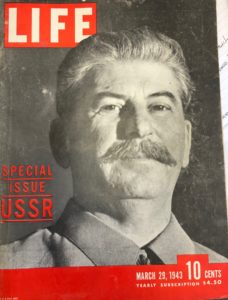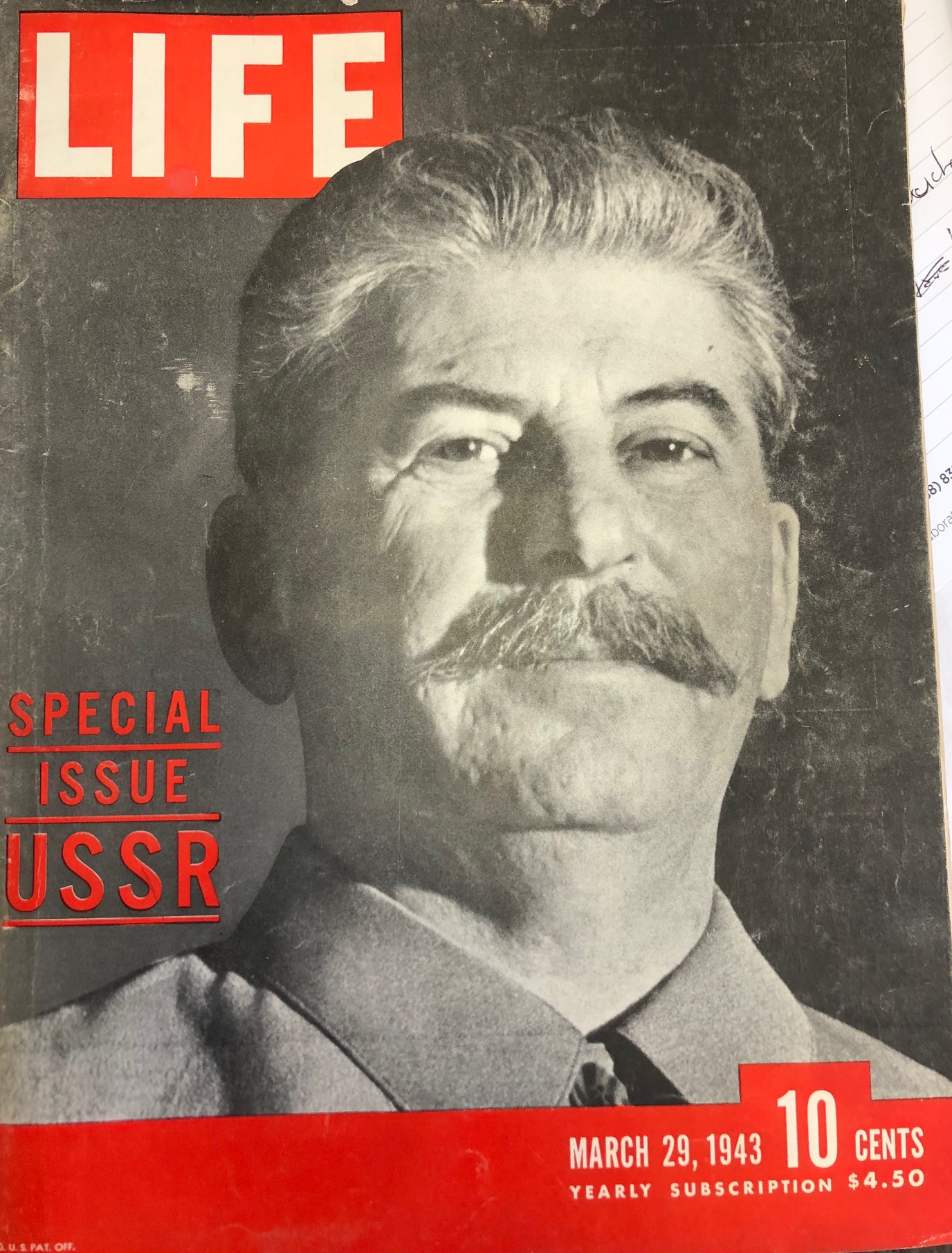
They [the Russians] live under a system of tight state-controlled information. But probably the attitude to take toward this is not to get too excited about it. When we take account of what the U.S.S.R. has accomplished in the 20 years of its existence, we can make allowances for certain shortcomings, however deplorable. For that matter, even 15 years ago the Russian economy had scarcely yet changed from the days of the Czars, and the kulaks of the steppes were still treating modern industrial machines like new toys. In 1929 the Soviet Union did not have a single automobile or tractor plant and did not produce high-grade steel or ball bearings. Today the U.S.S.R. ranks among the top three or four nations in industrial power. She has improved her health, built libraries, raised her literacy to about 80%–and trained one of the most formidable armies on earth. It is safe to say that no nation in history has ever done so much so fast. If the Soviet leaders tell us that control of information was necessary to get this job done, we can afford to take their word for it for the time being. We who know the power of free speech, and the necessity for it, may assume that if those leaders are sincere in their work of emancipating the Russian people, they will swing around toward free speech–and we hope soon.
This is from an editorial in Life, March 29, 1943. The whole issue was devoted to the USSR. Indeed, the title on the front, along with the picture of Joseph Stalin, is Special Issue USSR. (The issue was being thrown out when a neighboring office was being emptied and I retrieved it.)
The picture above is the cover. The picture, by the way, was taken by the famous photographer Margaret Bourke-White in 1941.


READER COMMENTS
Andrew_FL
Oct 18 2022 at 11:50am
This is in Life magazine under the ownership of conservative Republican Henry Luce, who the very next year appointed Whittaker Chambers Time’s (which he also owned) acting Foreign News editor. Contextually, I think what’s going on here is pretty obvious: whitewashing of our ally in War, for propagandistic reasons.
Jon Murphy
Oct 18 2022 at 6:18pm
Perhaps it is obvious to people who know the names you reference, but it’s not obvious to me. Do Luce and Chambers have a history of “whitewashing of our ally in War, for propagandistic reasons”? Were either (or both) involved with the writing of the article?
Mark Brady
Oct 18 2022 at 9:04pm
Henry Luce was editor-in-chief of all Time Inc. publications from 1929 until 1964, when he became editorial chairman. Life was one of those magazines so presumably he was aware of the contents of the special issue on the USSR prior to its publication.
Jon Murphy
Oct 18 2022 at 9:55pm
Sure, but it doesn’t obviously follow that the editorial is thus propaganda designed to drum up support for a wartime ally.
Again, merely invoking the name doesn’t make the connection obvious. As it stands, I see no reason to see the piece as propaganda for a wartime ally as opposed to just the general fascination/apologizing many had for the USSR.
Andrew said his conclusion was “obvious.” I don’t see it. I am looking for more evidence. What about the two people he invokes makes the conclusion obvious?
Michael Sharpe
Oct 19 2022 at 5:30am
Good observations Jon. History and the names that populate it, is a very, very big animal. Lots of players and moving parts and asking for clarification and a rationale is no sin.
David Henderson
Oct 19 2022 at 9:56am
My guess is that you’re right. My impression of Luce in those days, his peak days, is that he was hands on. It is from an editorial and my guess is that even if he didn’t write it. he oversaw it.
Kevin Corcoran
Oct 18 2022 at 1:50pm
How generous of the authors to declare they can afford something which imposes no costs on them! I know the mid 20th century was filled with really bad takes on the Soviet Union and all kinds of socialist regimes generally, but that comment strikes me as particularly egregious.
Jon Murphy
Oct 18 2022 at 6:05pm
Agreed. Talk about a comment that did not age well
Pierre Lemieux
Oct 18 2022 at 3:02pm
We’ve come a long way, baby–or have we?
David Henderson
Oct 18 2022 at 4:18pm
I think we have.
MarkW
Oct 19 2022 at 6:50am
Yes, but slowly and unevenly. There were many similar puff pieces about China, cheering on how they can get important, visionary things done quickly (e.g. a nationwide high-speed rail network), and why can’t we be like that? How well has this op-ed column aged?
David Seltzer
Oct 18 2022 at 7:05pm
“We who know the power of free speech,” “They [the Russians] live under a system of tight state-controlled information.” Seems contradictory. From the 1920s until his death in 1953, Joseph Stalin used barbarous policies that resulted in famines, imprisoned enemies and executed dissidents who spoke out. Of course there was tight state-controlled restriction on information. Did the editors at Life Magazine know this? If they did, they are monsters. If they didn’t, they were duped, exalting that murderer.
Comments are closed.